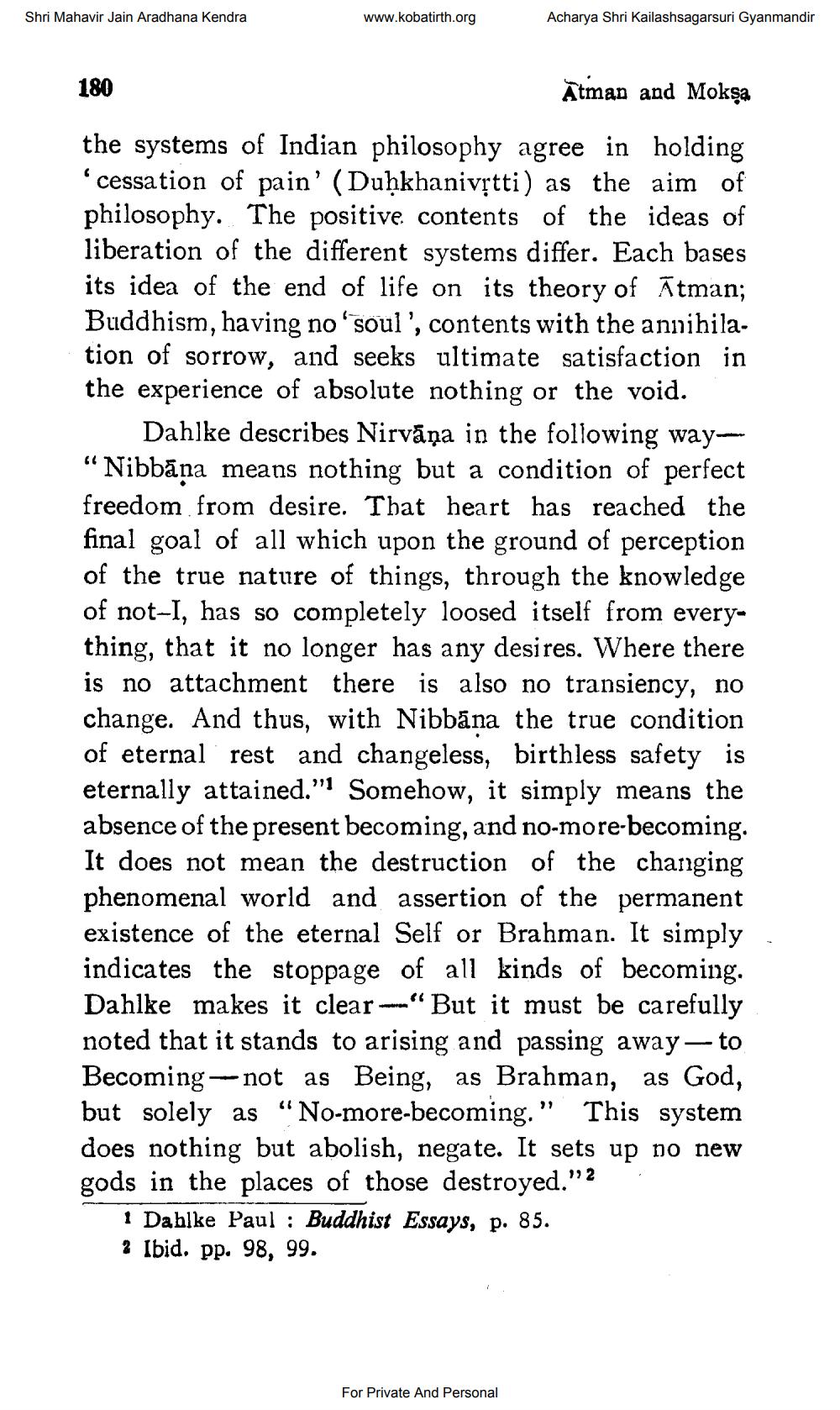________________
Shri Mahavir Jain Aradhana Kendra
www.kobatirth.org
Acharya Shri Kailashsagarsuri Gyanmandir
180
Atman and Mokşa
the systems of Indian philosophy agree in holding ' cessation of pain' (Duḥkhanivịtti) as the aim of philosophy. The positive contents of the ideas of liberation of the different systems differ. Each bases its idea of the end of life on its theory of Ātman; Buddhism, having no soul', contents with the annihilation of sorrow, and seeks ultimate satisfaction in the experience of absolute nothing or the void.
Dahlke describes Nirvāṇa in the following way“ “Nibbāna means nothing but a condition of perfect freedom from desire. That heart has reached the final goal of all which upon the ground of perception of the true nature of things, through the knowledge of not-I, has so completely loosed itself from everything, that it no longer has any desires. Where there is no attachment there is also no transiency, no change. And thus, with Nibbāna the true condition of eternal rest and changeless, birthless safety is eternally attained." Somehow, it simply means the absence of the present becoming, and no-more-becoming. It does not mean the destruction of the changing phenomenal world and assertion of the permanent existence of the eternal Self or Brahman. It simply indicates the stoppage of all kinds of becoming, Dahlke makes it clear ~" But it must be carefully noted that it stands to arising and passing away – to Becoming - not as Being, as Brahman, as God, but solely as “No-more-becoming.” This system does nothing but abolish, negate. It sets up no new gods in the places of those destroyed." 2
1 Dablke Paul : Buddhist Essays, p. 85. 3 Ibid. pp. 98, 99.
For Private And Personal




